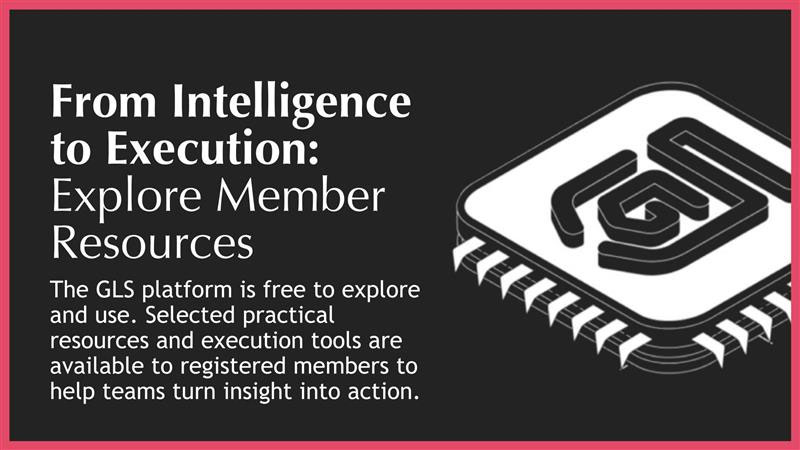Back
Stop Briefing Your Mates: Why GCs Must Rethink External Legal Relationships
• 08 Dec 25

Introduction
Let’s talk about the elephant in the legal department.
For all the talk of transformation, efficiency, and strategic alignment, there’s one area where many General Counsel still operate like it’s 1999: external provider management. The law firm panel. The go-to counsel. The “trusted advisor” who’s been around since the IPO. The firm you left when they didn’t make you partner – but who still gets half your litigation work.
It’s time to call it what it is: nostalgic briefing. And it’s costing your legal team – and your business – more than you think.
The Comfort Trap
Legal leaders are supposed to be strategic. They’re meant to be the stewards of legal risk, the architects of legal capability, and the guardians of budget discipline. But when it comes to external counsel, too many GCs fall into the comfort trap.
They brief work to people they know. People they trust. People they’ve worked with before. And while trust is important, it’s not a substitute for performance. Familiarity is not the same as value. And loyalty – while admirable – is not a procurement strategy.
Let’s be blunt: if your external provider strategy is built around who you went to law school with, who you shared a floor with in your Big Law days, or who still sends you birthday emails, you’re not managing external providers – you’re indulging them.
The Cost of Nostalgia
This isn’t just a philosophical issue. It’s a financial one.
External legal spend is often the largest single budget line in the legal department. It dwarfs tech investment, training, and even internal headcount. And yet, in many organisations, it’s the least scrutinised. Panels are bloated. Rates are opaque. Performance is anecdotal. And value is assumed, not measured.
The result? Millions spent. Outcomes unclear. And a legal team that’s increasingly sidelined by the very providers it’s supposed to manage.
The GC’s Strategic Blind Spot
Here’s the irony: the General Counsel is the only person in the organisation with the authority, visibility, and mandate to fix this. They control the budget. They set the tone. They define the rules of engagement.
But too often, they don’t.
Why? Because it’s awkward. Because it’s personal. Because it means saying no to people they’ve known for years. Because it means admitting that the firm they used to work for – the one that didn’t make them partner – might not be the best fit anymore.
But leadership isn’t about comfort. It’s about performance. And if the GC isn’t willing to challenge legacy relationships, they’re not leading – they’re coasting.
The Market Has Moved On
Meanwhile, the legal market has evolved. Dramatically.
Boutique firms now offer specialist expertise at a fraction of the cost. Mid-tier firms deliver leaner, faster, and more agile support. ALSPs (Alternative Legal Service Providers) bring process discipline, tech integration, and scalable delivery models that traditional firms can’t match.
There is a stunningly diverse range of value options out there – but you won’t find them if you’re only looking in your old contacts list.
The GC must be willing to explore. To benchmark. To test. To build a panel based on capability, not chemistry. To engage providers who challenge the legal team, not just agree with it. To demand metrics, not memories.
What Good Looks Like
A high-performing GC doesn’t just manage external providers – they lead them.
They define clear matter allocation protocols. They negotiate fixed fees, capped arrangements, and value-based billing. They track performance – responsiveness, outcomes, cost-efficiency. They conduct regular reviews. They rotate work. They reward innovation. They penalise complacency.
They also ensure that external providers contribute to the legal team’s knowledge base. That insights are captured. That learnings are embedded. That the value doesn’t walk out the door when the invoice is paid.
And most importantly, they build a panel that reflects the legal team’s strategic priorities – not their personal history.
The Culture Shift
This isn’t just about process. It’s about culture.
When the GC leads external provider management with discipline and transparency, it sends a message to the entire legal team: we are here to perform. It builds morale. It creates clarity. It empowers internal lawyers to focus on high-value work, knowing that external support is being deployed strategically.
It also strengthens the legal team’s credibility with the business. When external spend is justified, tracked, and aligned to outcomes, the CFO listens. The COO engages. The Board respects.
But when spend is opaque, relationships are cosy, and outcomes are vague – the legal team loses its seat at the table.
Time for a Reckoning
So here’s the challenge.
If you’re a General Counsel, take a hard look at your external provider strategy. Ask yourself:
◼️Are you briefing work based on performance – or preference?
◼️Do you have clear criteria for matter allocation?
◼️Are you measuring provider outcomes?
◼️Are you capturing knowledge from external engagements?
◼️Are you exploring new providers – or just recycling old ones?
And most importantly: are you leading this function – or avoiding it?
Because in today’s legal environment, external provider management is not a back-office task. It’s a strategic imperative. And it belongs to the GC.
Final Thought
The legal department is evolving. Legal operations are maturing. Technology is transforming delivery. And the business is demanding more – faster, cheaper, better.
In this context, nostalgic briefing isn’t just inefficient – it’s irresponsible.
A great GC doesn’t just manage external providers. They build partnerships. They drive performance. They challenge legacy. They search for value. And they lead with clarity, not comfort.
So stop briefing your mates. Start managing your panel. And take control of the legal value chain.
Ready To Transform Your Legal Team?
Please check out the GLS solutions and know-how resources listed on the right side of this page – they might assist your legal team with the issues explored in this Blog.
© The GLS Group - Law Rewritten

The GLS Legal Operations Centre
Register to access your complimentary Day 1 Resource Stack packed with legal team performance resources.

GLS Ultimate Guide To Legal Operations
Download this and read it thoroughly and regularly. It is a wonderful transformation companion.

Book A No-Obligation Consultation
If you would like discuss your legal transformation needs, please book a 30 minute free consultation with us.

GLS Legal Transformation Boot Camp
Our hugely successful, 10-week long, email-based boot camp on how to effectively transform your legal team.



